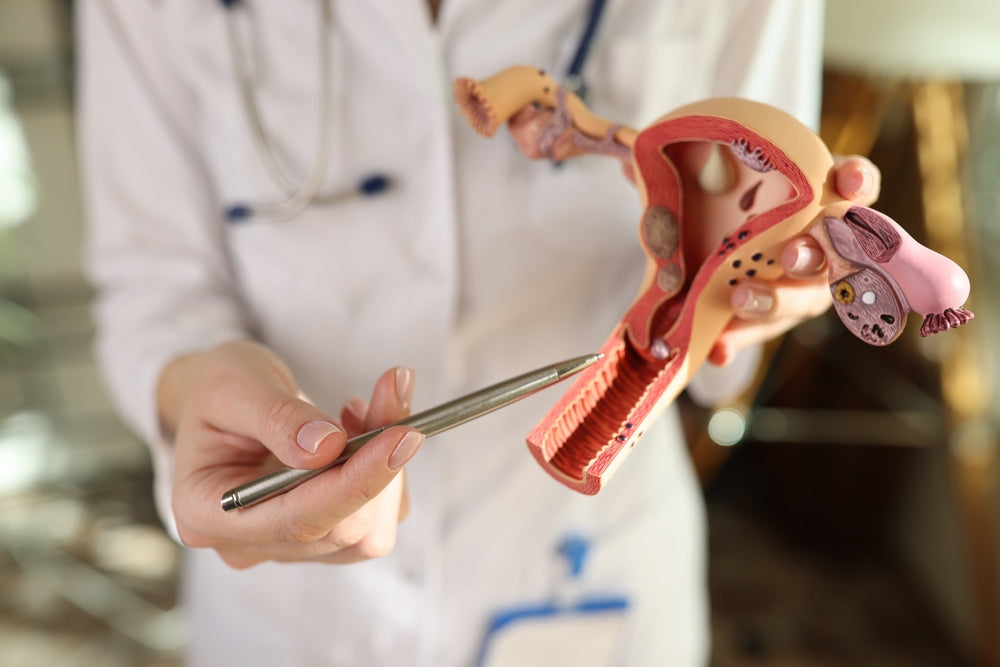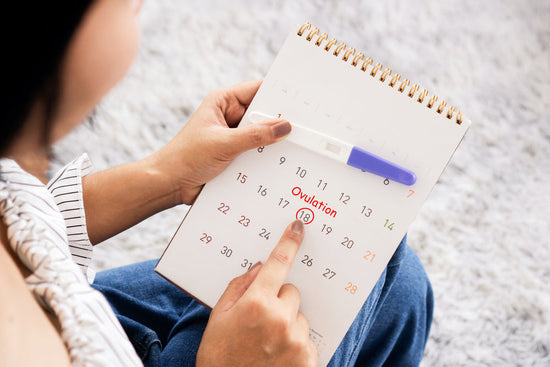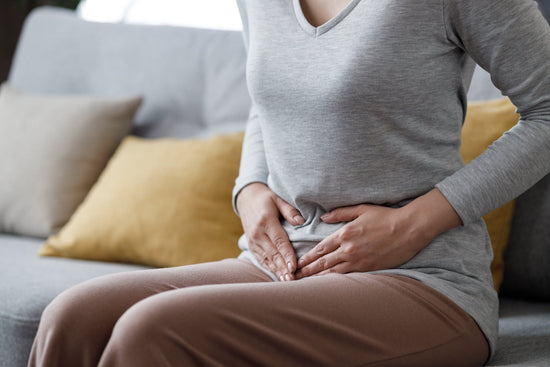Menstrual cycle, cycle phases, and what was the ovulation ? You may have already gone through all this in school, but all the terms can be confusing. Ovulation, which usually occurs in menstruating people, every month occurs, we want to take a closer look today. While some people do not notice it at all, others can feel exactly when ovulation occurs. In today's blog post you will learn, which processes are involved in ovulation , what exactly happens , how long it lasts and much more.
Ovulation: What is it and what happens?
But what exactly is ovulation? In short: Ovulation, which is also ovulation or Follicle rupture , marks the time when the egg is released from the ovary into the fallopian tube. Ovulation takes place during the ovulation phase of the cycle. During the ovulation phase, the Proportion of luteinizing hormone (LH) increases steadily until finally the Ovulation triggered becomes.
You may now be wondering what ovulation is good for. It is quite simple: without ovulation, no pregnancy It is therefore the basic prerequisite for people who want to have children to be able to fulfil this wish. Through ovulation, the egg cell finally has the opportunity to fertilized by a male sperm to become fertile - only in this way can conception and thus pregnancy occur.
Find the right Taynie for you.Discover our diversity!
How do I know when I am ovulating?
How do you know that you are ovulating? You may not even feel like you are ovulating. The fact is that very few menstruating women know their ovulation Really feel ovulation However, there are some Forerunners that indicate that you may soon be ovulating. If you know these, you will be able to recognize the symptoms with a little experience and interpret them correctly. We would now like to introduce you to these possible signs.
Signals of the body
Your body may be giving you some symptoms to let you know that you are ovulating or about to ovulate. You may notice the following symptoms:
- Abdominal pain
- Spotting or intermenstrual bleeding
- Slight drop in temperature
- Painful or tense breasts
These symptoms are usually only of short duration , because ovulation usually occurs within one day. If the symptoms persist over a longer period or even worsen, you should Consult your doctor hold.
Cervical mucus
Have you heard the term Cervical mucus Have you ever heard of it? This is the Discharge from the vagina during your cycle . The Consistency of cervical mucus changes depending on the cycle phase - including during the ovulation phase. In the
Firmness of the cervix
The lower end of the cervix is called cervix and you can even feel . In the barren period, after menstruation , is he closed and usually feels firmly to. In the fertile period however, he is slightly opened and feels rather soft The Position of the cervix changes depending on the phase of your cycle: after menstruation it sits low and during ovulation it sits high.
How manydays after the period is ovulation?
You may be wondering how many
One way to find out when ovulation occurs is Cycle apps Here you can document your entire cycle and you will be shown when you are likely to get your period, on which
Various websites also offer you the opportunity to determine your ovulation using a Ovulation calculator However, you need to know for sure on which day your last period started and how long your cycle is.
How long does ovulation last?
From the beginning of the cycle until ovulation, the follicle This is a bubble-like structure within the ovaries in which the egg cell matures. During ovulation, the follicle bursts and as we have already explained to you, the egg is then released from the ovary into the fallopian tube. Ovulation itself usually takes place once within a cycle and lasts only about a day . The egg cell eventually travels to the uterus and this takes about four to five
What does ovulation do to me?
As you already know, ovulation can be various physical symptoms In addition, ovulation can also affect the psyche of menstruating women.But why is that? In the second half of your cycle, after ovulation, the Serotonin concentration in your body. The hormone serotonin is also known as the happiness hormone. So you can probably imagine what happens when the amount of serotonin in your body suddenly drops. Some people react very strongly to this Hormone drop and develop during this time depression-like symptoms , which then settle down again.
Am I most fertile during ovulation?
The term ovulation often comes up in connection with the desire to have children, since menstruating women are most fertile during ovulation. But what exactly is ovulation, how do you notice it and how long does it last? In today's blog post you will find out everything you need to know about ovulation.





